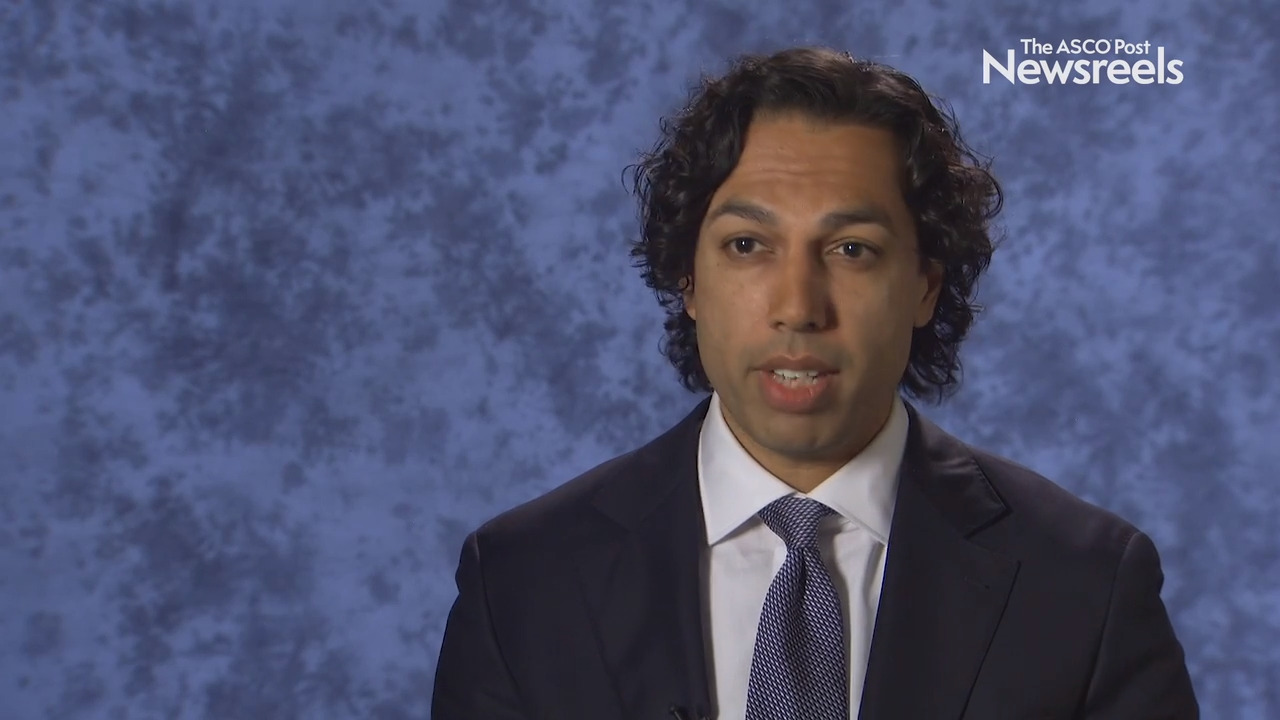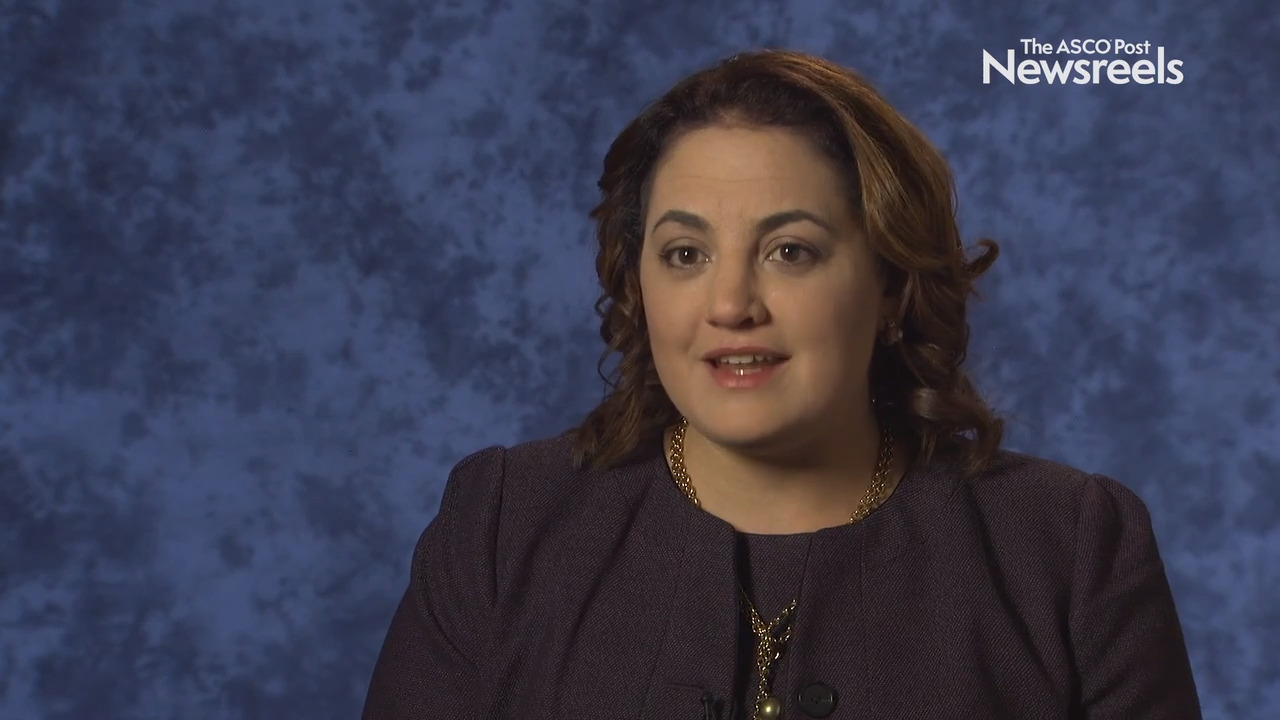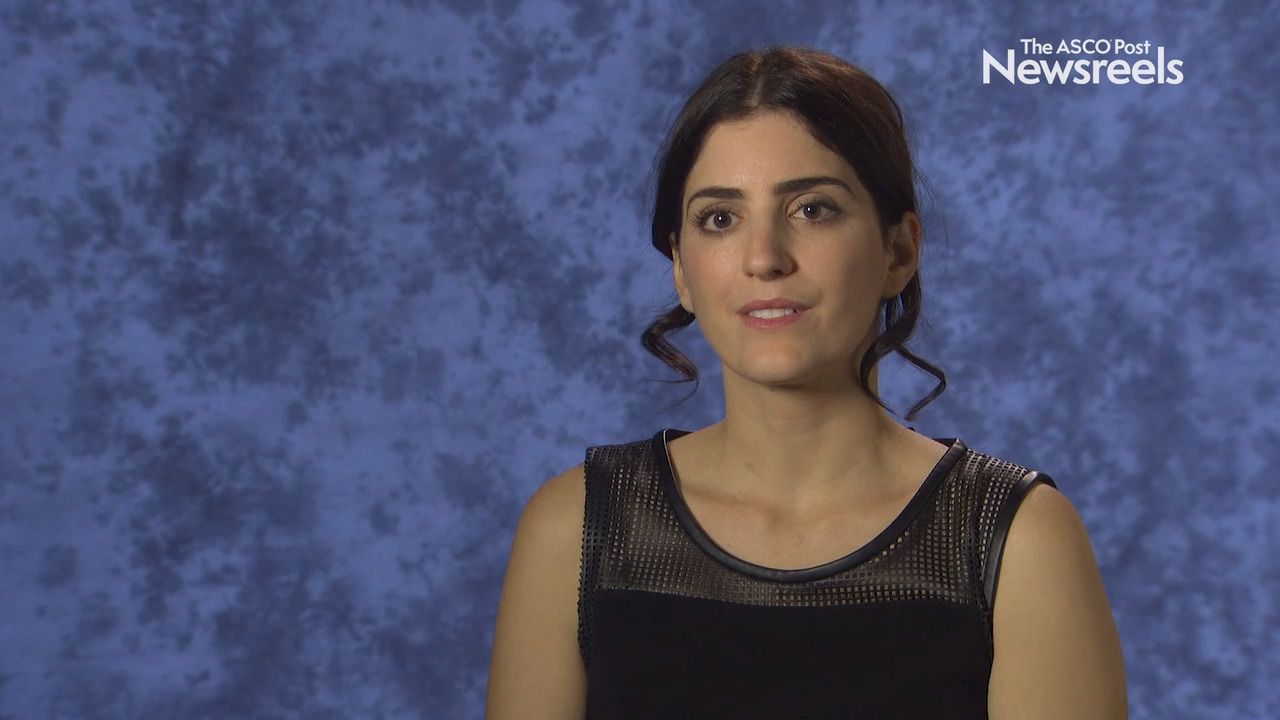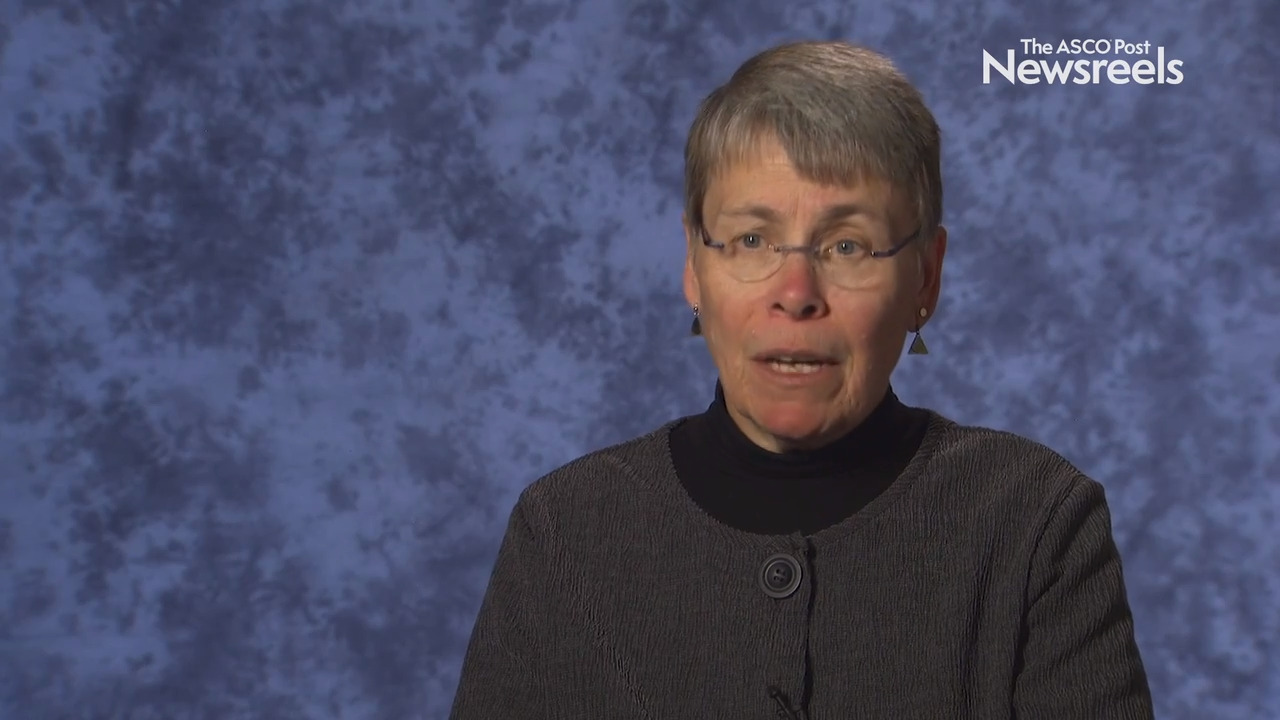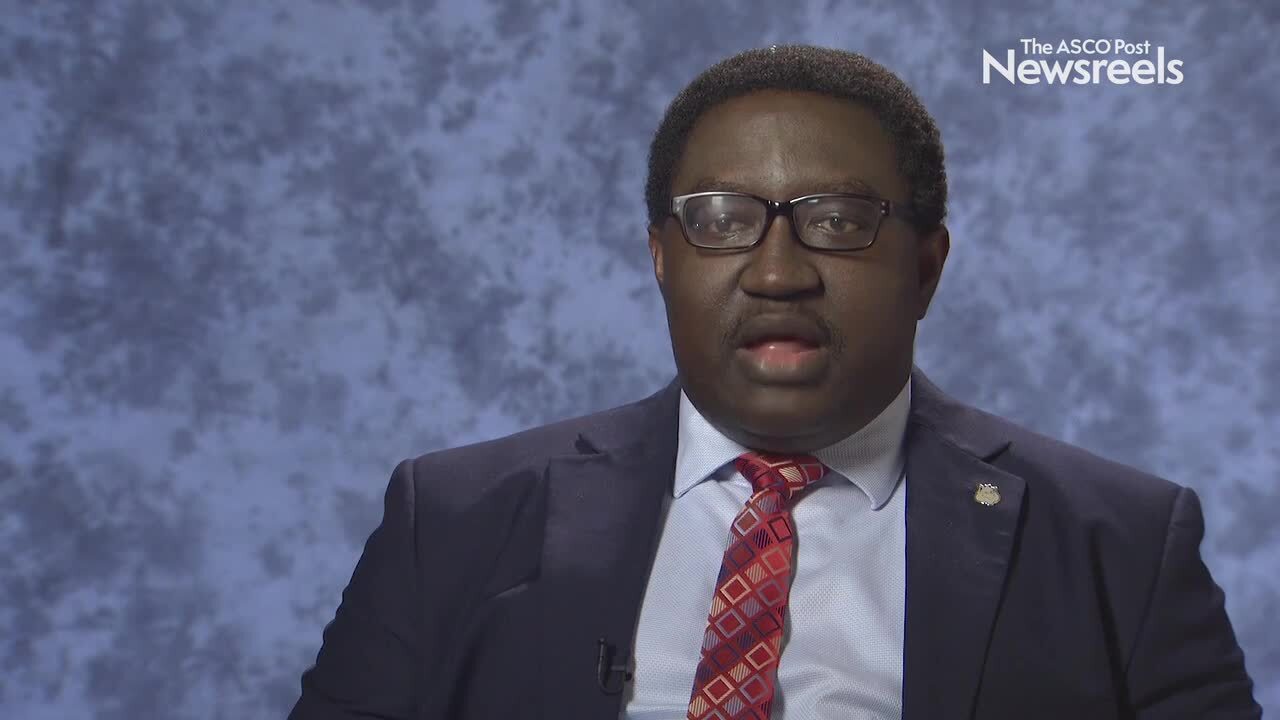Elizabeth Jane Cathcart-Rake, MD, on Immunotherapy-Related Toxicities: More Common Than Originally Reported?
2018 Palliative and Supportive Care in Oncology Symposium
Elizabeth Jane Cathcart-Rake, MD, of the Mayo Clinic, discusses the frequency of side effects from immunotherapy, the need to closely monitor those receiving this treatment, and the role of clinicians in educating their patients on toxicities (Abstract 184).
Mihir M. Kamdar, MD, of Massachusetts General Hospital, discusses study findings on a smartphone app called ePAL, which significantly reduces pain and pain-related hospital admissions by combining patient-reported outcome data and artificial intelligence via a telemedicine platform (Abstract 76).
Allison S. Betof Warner, MD, PhD, of Memorial Sloan Kettering Cancer Center, discusses the rationale for immunotherapy and combination treatments, identifying the agents that lead to toxicities, and ways to manage them.
Suleika Jaouad, an Emmy Award–winning writer, advocate, and cancer survivor who was diagnosed at age 22 with myelodysplastic syndrome and acute myeloid leukemia, discusses what she has learned about coping with cancer, learning from it, and growing beyond it.
Mary E. Johnson, author of Stay With Me Awhile, discusses her play, a compilation of vigil stories from across cultures and religions, and the profound impact the performances have had on audience members.
Nosayaba Osazuwa-Peters, MPH, PhD, of St. Louis University, discusses study findings on married cancer survivors with advanced stage disease who were less likely to die by suicide, highlighting the value of supportive care in cancer survivorship (Abstract 181).
